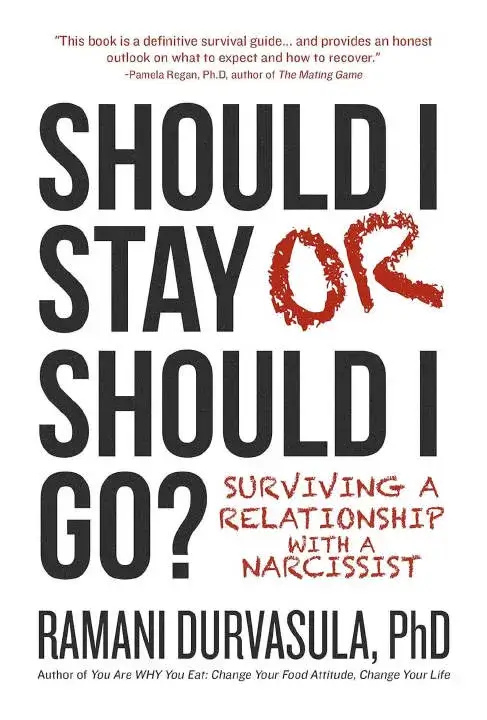— Researched and written by Dr. Sandip Roy.
Separations and divorces are life crises. But it can get extremely toxic when you’re divorcing a covert narcissist—the one who doesn’t want to be found out as such.
A covert narcissist mostly abuses you by maintaining control over you without being openly cruel, so you should be prepared.
They can play you until the last moment your divorce is finalized. They can come at you fully vindictive, as they see their methodically trained narcissistic supply—you—leaving them.
You might not even realize the emotional maze they dragged you through until many years later. But here’s the deal: knowledge is power.
Take-Home Messages:
- Choose an attorney who understands narcissism.
- Document everything—your evidence is your power.
- Keep communication minimal and through your attorney.
So, let’s break down the tips and traps you need to know to get through this.

Surviving A Covert Narcissist Divorce
7 Emotional Traps Covert Narcissists Use In Divorces
Knowing these emotional tactics can equip you to stay strong and focused during the divorce process.
Keep your eyes open and watch for their emotional traps:
- Mind Games Galore: Covert narcissists are masters of manipulation. They’ll twist facts and situations to make you doubt your own reality. This is called gaslighting — a tactic to keep you constantly off-balance.
- Emotional Rollercoaster: One minute they’re sweet, the next they’re cold. This emotional whiplash isn’t accidental; it’s designed to keep you anxious and uncertain.
- Blame Shifting: Get ready for a world where everything is somehow your fault. They’ll never take responsibility and will shift the blame onto you, especially in front of lawyers or in court.
- Silent Treatment: This is a classic. If they’re not getting what they want, they might shut down communication to punish you. It’s a control tactic, plain and simple.
- Victim Playing: They’ll portray themselves as the victim, trying to win sympathy from anyone who’ll listen, including the court. Scrutinize every offer and suggestion, no matter how harmless. Don’t let their sob stories distract you from the facts.
- Guilt-Tripping: They’ll use guilt as a weapon, making you feel bad for standing up for yourself or for wanting the divorce in the first place.
- Control by Proxy: The narcissist can recruit third parties – friends, colleagues, workmates, family members, the authorities, institutions, neighbors, the media, teachers – to do his bidding in the court. He can use them to prove you wrong, cruel, untrustworthy, cheating, and manipulative.
“Narcissists install a mental filter in our heads a little bit at a time. . . . Will he get upset if I do/say/think this? Will he approve/disapprove? Will he feel hurt by this? Until we can uninstall the narcissist-filter, our actions are controlled by narcissists to some degree.”
— Sam Vaknin, Professor of Psychology. Author of Malignant Self Love: Narcissism Revisited
How Can A Covert Narcissist Act During Divorce
Living with a narcissist is emotion-sucking and energy-draining. Divorcing them can be your roughest ride on a rickety rollercoaster.
- Self-Importance Excess: Be prepared for your spouse to act like the world revolves around them during the divorce. Don’t let this throw you off; keep your focus.
- Fantasy (La La) Land: They may paint a picture of how they’ll thrive post-divorce. Don’t buy into it; it’s a tactic to make you doubt your decision.
- The “Special” Card: They’ll try to isolate you, claiming only certain people can understand them. Don’t fall for it; keep your support network alive.
- Admiration Addiction: Expect them to seek validation from everyone, including the court. Don’t let this sway your own narrative.
- Entitlement Alert: They’ll expect special treatment and may not comply with legal requirements. Be ready to hold your ground.
- Exploitative Moves: They can try to use your vulnerabilities against you. They can be excessively attentive, charming, or tempting to weaken your willpower. Keep personal information guarded.
- Empathy Drought: Don’t expect compassion or fairness. Stick to the facts and legal advice.
- Envy Traps: They might try to make you jealous of their new life or relationships. Ignore it; it’s a diversion.
- Arrogance Overload: Expect a condescending attitude. He can react with extreme rage for your mildest slight. Don’t let it get to you; it’s just another manipulation tactic.
Tips To Handle The Divorce With The Narcissist
Questions To Ponder On
The most vital things to mull over when considering separation from a narcissist:
- How to expose the narcissist’s manipulations in the court?
- How to cope with their behavior during the divorce process?
- What to expect of the covert narcissist’s behavior (violent & hateful)?
Communication Strategies To Use
- Manage Your Emotions: You’re going to be tested, emotionally speaking. Keep your cool and don’t let their tactics get under your skin. I know, it’s easier said than done, but it’s extremely crucial to maintain a level head.
- Set Boundaries: Limit how much you talk to them, or allow them to reach out to you. The less, the better. And when you do have to communicate, keep it short and factual. Maintain your boundaries despite all their threats and enticements.
- Use Your Attorney: Seriously, let your attorney do the talking. It keeps the stress off you and puts a buffer between you and the narcissist’s games.
Dealing With Their Worst Behavior
Sam Vaknin spells out how to deal with a narcissist when they’re at their worst.
- “If he has a narcissistic rage attack, rage back. This will provoke in him fears of being abandoned and the resulting calm will be so total that it might seem eerie.”
- “Mirror the narcissist’s words and repeat his words. If he threatens, threaten back and credibly try to use the same language and content. If he leaves the house, leave it as well, disappear on him. If he’s suspicious, act suspicious.”
- “Never show your abuser that you are afraid of him. Do not negotiate with bullies. … If things get rough, disengage, involve law enforcement officers, friends, and colleagues, or threaten him (legally).”
Financial Traps To Avoid
- Watch for hidden assets: Covert narcissists can be sneaky about money. Make sure your attorney digs deep to uncover any hidden assets.
- Don’t rush to settle: They might push you to settle quickly. Don’t. Take your time and make sure you’re getting a fair deal.
- Separate sources of wealth: You should have independent sources of wealth (trust fund, real estate, bank accounts, deposits, securities) and sustainable sources of income (a job, rental income, interest and dividends, royalties)
- Keep your financial details private: Do not share the full details of your life and critical bits of information such as banking passwords and safe box access codes with your narcissist partner.
Protecting Yourself And Your Kids
One of your main aims is to reduce the potential stress and conflict your children might witness during the divorce process.
- Create a Safe Emotional Environment for Your Children: Clearly define what behaviors you will not allow or tolerate from the narcissistic parent, especially in the presence of your children. Be clear that he/she cannot make any disparaging remarks about you or use manipulative tactics to influence them. Firmly uphold these boundaries and seek legal enforcement if necessary to shield your children from emotional harm.
- Appoint a Family Law Attorney with Narcissism Experience: Choose a lawyer who is knowledgeable about narcissism to act as an intermediary. Let your attorney handle all communication once you are living separately — it is the safest way to protect yourself and your kids from their tactics. This attorney can help keep a watch over you and your children, using security services as they deem necessary.
- Strengthen Supportive Relationships for Your Children: Ensure your children maintain healthy relationships with family members and friends who provide emotional support and a sense of normalcy. This network can offer stability and a counterbalance to any negative influences from the narcissistic parent. If these connections have waned, take steps to rebuild them, emphasizing the importance of positive, loving interactions for your children.
Legal Tips To Consider
- Pick the Right Attorney: This is crucial. You need an attorney who understands what narcissism is all about. They’ll be your shield and your guide through the legal maze.
- Document Everything: Covert narcissists are sneaky, but they’re not smarter than a paper trail. Keep records of all interactions, texts, emails, and financial transactions. This evidence can be a game-changer in court.
Remember to stay positive through this highly toxic divorce process.
Final Words
The narcissist lives in an emotional vacuum. Don’t let them suck the life out of you after you decide to divorce them.
Divorcing a covert narcissist is an emotionally and financially costly battle. To win it, you would need the right legal help, especially a trustworthy attorney who has in-depth knowledge about narcissist divorces.
Keep your emotions in check and set firm boundaries with them until the divorce process is complete. You’re not just ending a marriage; you’re reclaiming your life.
The book “Should I Stay or Should I Go?” by Dr. Ramani Durvasula helps us understand narcissistic relationships:
Finally, never let your narcissist separate you from your family of origin and close friends, no matter how much they ask you to.
However, if you haven’t kept up your pre-narcissist support system, then revive your social network and relationships after the divorce.
√ Please share it with someone if you found this helpful.
√ Also Read:
- How Can You Manipulate Your Narcissist?
- 10 Toxic Things Covert Narcissistic Mothers Say
- Covert Narcissist Test: A Narcissist Or A Touchy Introvert?
- 7 Weird Things Covert Narcissists Do (Strange Behaviors!)
- How To Break A Trauma Bond After A Breakup With An Abuser?
• Our Story!
